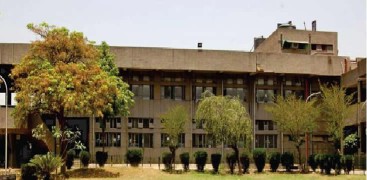DU's academic council adopts FYUP syllabi; 7 members send dissent letter


The Delhi University's academic council on Wednesday approved the first-semester syllabi of the four-year undergraduate programmes (FYUP) based on the newly introduced Under Graduate Curriculum Framework (UGCF). Seven council members dissented against the resolution.
The matter will now be sent to the executive council, the DU's top decision-making body, for approval.
"FYUP syllabi of all courses on agenda have been passed by the academic council. Seven members of the council issued dissent note," a council member told PTI.
The new curriculum will be used starting with the academic year 2022–2023.
The executive council had in February approved an Undergraduate Curriculum Framework-2022 (UGCF-2022), as formulated by a National Education Policy cell.
The syllabi of over 100 undergraduate courses passed by a standing committee were tabled for approval during the meeting.
Some of the courses are -- BA (Hons) in Business Economics, BA (Hons) Multi-Media and Mass Communication, BSc in Electronic Science and BSc (Hons) in Microbiology.
The course committees have prepared the syllabus, which a standing committee has approved. Five academics comprise a course committee: two from the concerned authority and three from other universities.
The dissenting academic council members claimed that over 70,000 students would suffer due to the "un-academic hurried exercise" through which the DU was trying to claim implementation of the FYUP. Some of the dissenting members are Mithuraaj Dhusiya, Rajesh Kumar, Dr Megh Raj and Naveen Gaur.
"To adopt courses and admit students on the basis of syllabi of first semester papers is extremely unacademic. It is only when all the framework, coursework, syllabi and scheme of evaluation is known that the value of the degree can be understood," the members noted.
They also pointed out that many departments have worked with a select few teachers in creating these courses and syllabi, violating democratic norms of holding meetings of all teachers (general bodies) and working through sub-committees for broad areas.
The feedback of undergraduate teachers has been ignored in many departments, the members alleged.
"The common feeling of all teachers (even those who have participated) is that the decrease in credits for papers is resulting in a huge dilution of core discipline," they said.
The syllabi will now be presented to the executive council and implemented if cleared by it.
The Center discontinued the FYUP programme, which the university had previously introduced in 2013. But this time, according to DU, the FYUP would be different from the previous one.
26 courses for skill enhancement courses (SEC) were also authorised by the academic council. A two-credit elective paper is called SEC.
The resolution was also met with criticism from the seven members of the academic council, who questioned the SEC's eligibility for specific courses.
"Restricting SEC will inflate workload of few departments while leading to major workload issues in others," the dissent note mentioned.
The university's forthcoming four-year undergraduate curriculum will include 24 value-added courses, which the council also approved the syllabus for.
Some of the topics covered in the courses are Vedic Mathematics, Swachh Bharat, Gandhi and Education, Digital Empowerment, Ayurveda and Nutrition, Culture and Communication, and Constitutional Values and Fundamental Duties.